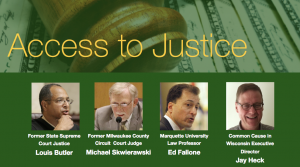Marquette Law Review Article Featured in Prescription Painkiller Exposé
In cooperation with 60 Minutes, the Washington Post has published a fascinating new story about the behind-the-scenes efforts of actors in the pharmaceuticals business to soften regulatory enforcement at the just the time that the nation’s opioid problems were reaching epidemic proportions. The story would be an engaging read for anyone, but Marquette folks may note a particular point of interest: the Post prominently quotes a forthcoming article in the Marquette Law Review.
According to the Post story, the federal Drug Enforcement Administration has long had authority to block suspiciously large shipments of prescription painkillers that pose an imminent danger to the community. In the late years of the Bush Administration and early years of the Obama Administration, the DEA became increasingly aggressive in using this authority to target businesses that were involved in questionable ways with the distribution of opioids. The Post reports that these businesses pushed back, initially finding some success through lobbying the Department of Justice. However, they seemingly had their greatest success when Congress passed, and President Obama signed into law, changes to the DEA’s enforcement standards and procedures.
This legislation is the subject of the Marquette Law Review piece, authored by John Mulrooney and Katherine Legel. Mulrooney is an administrative law judge with the DEA. Legel, a graduate of Marquette Law School, was a judicial law clerk with the DEA. Of the 2016 law, they write, “If it had been the intent of Congress to completely eliminate the DEA’s ability to ever impose an immediate suspension on distributors or manufacturers, it would be difficult to conceive of a more effective vehicle for achieving that goal.” This and other aspects of the law review article are noted in the Post’s reporting. Student-editors who have been working on the article should feel gratified to see the piece playing such a prominent role in the ongoing efforts of journalists, policymakers, and academics to better understand the multitude of factors that may be contributing to the current opioid crisis.


